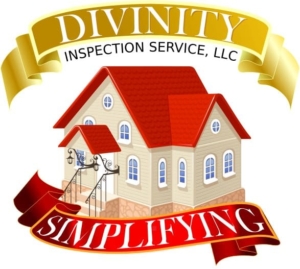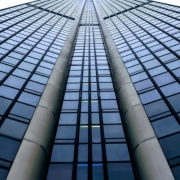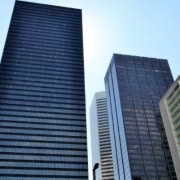Investment in real estate can be daunting, even for experienced real estate investors, because so many variables go into determining the potential return on investment (or ROI) on commercial property. One way to address some of those variables is to hire a commercial building inspector to perform commercial property inspection services. Determining ROI means getting a handle on both revenues and expenses, and a report produced as a result of commercial property inspection services can be a starting point for determining the repair and maintenance costs for the property. Here are 4 things to expect from a commercial building inspection:
Scope
You should expect a discussion about the scope of work with the commercial building inspector. Commercial building inspections are performed for any type of revenue-generating property, including office buildings, retail buildings, restaurants, warehouses, and factories. While commercial property inspection services are provided according to standards set by international organizations, you will likely need to discuss whether the level of inspection you require goes beyond what is addressed by the standards.
For example, when your commercial property includes hotels, motels, and apartment buildings you may need to discuss with your commercial building inspector whether he or she needs to also consider issues more associated with home inspections in addition to commercial inspections. For multi-unit properties, such as storage units or multi-unit residences, you should discuss whether the commercial building inspector should inspect each individual unit. Moreover, if you are aware of specific issues, such as prior flood or wind damage, you may need to discuss whether the commercial building inspector should pay special attention to repairs or renovations undertaken. Foregoing this discussion beforehand may reduce or eliminate the need for re-inspection or rewrites to the commercial building inspector’s report.
Commercial Inspection Services
During the inspection, you should expect the building inspector to request access to visually inspect the building’s interior and exterior. The commercial building inspector may also ask for an interview with the current owner or manager familiar with any issues with the commercial property.
The visual inspection for an average home inspection may include over 500 data points, and a commercial building inspection is no different . The visual inspection will include the roof, exterior walls, foundation, exterior drainage, interior walls, plumbing, electrical system, heating and cooling system, windows and doors, attic insulation, fire systems, and cooking areas, if any. The purpose of the inspection is to look for safety concerns, structural concerns, and building code violations. During the visual inspection, the commercial building inspector may take photographs for use in his or her analysis.
Commercial property inspection services generally do not include invasive testing. Thus, it is not intended to find wood rot, root damage to sewer lines, insect activity, or other invisible problems.
Report
After the visual inspection, you should expect the building inspector to conduct research and prepare an inspection report. The inspector may also request access to the commercial property to re-inspect certain areas.
The commercial building inspector may review documents, such as prior inspection reports, appraisals, and building inspection records, and conduct research into the property’s history. Commercial property inspection services result in a report identifying those material problems the inspector believes the buyer should be aware of prior to purchasing the property. When reviewing the report, keep in mind that:
- Neither the inspection nor the report is intended to be comprehensive
- The report is necessarily subjective, with the commercial building inspector exercising his or her professional judgment in identifying issues of interest
- Reports typically do not include estimates since this would create a conflict of interest
- The report is not an engineering report, unless you specifically request it
Exclusions
Unless specifically requested during the initial discussions, you should not expect commercial property inspection services to include testing for toxic chemicals, such as radon gas, asbestos, lead paint, or soil contamination. However, your building inspector may be able to perform these tests if specifically requested or may refer you to inspectors that specialize in testing for toxic chemicals and contamination. Similarly, building inspectors are not trained to detect fraud or problems that are deliberately concealed by the seller.
Commercial property inspection services are intended to aid the buyer in making a business decision whether to invest in property by identifying and reporting possible issues that will affect the commercial property’s ROI.





